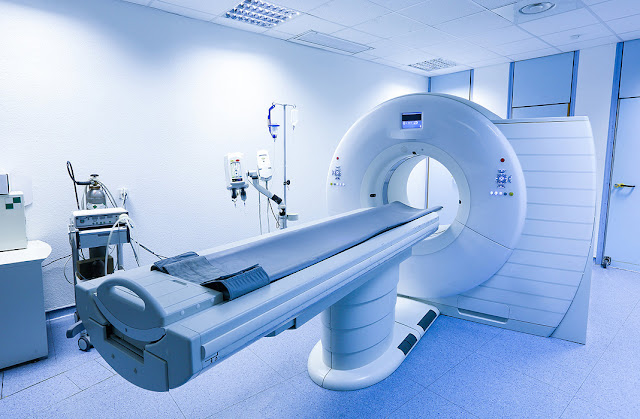Computed Tomography Market: Growing Adoption of Portable and Point-of-Care CT Systems
The computed tomography (CT) market has been experiencing a notable trend in recent years, marked by the growing adoption of portable and point-of-care CT systems. These compact and mobile imaging devices have revolutionized the way medical imaging is delivered, bringing the benefits of CT scanning to various clinical settings beyond traditional radiology departments.
Portable CT systems offer several
advantages that contribute to their increasing popularity in the healthcare
industry. One of the primary benefits is their mobility. These systems are
designed to be lightweight and easily transportable, making them ideal for use
in emergency departments, intensive care units (ICUs), and other critical care
areas. They enable medical professionals to rapidly assess patients at the point
of care, providing timely and crucial diagnostic information without the need
for patient transfer to a dedicated CT suite.
Furthermore, portable CT systems
have streamlined workflow efficiency. Their quick setup and ease of use enable
more rapid image acquisition and interpretation, reducing the waiting time for
results. This efficiency is particularly valuable in time-sensitive situations,
such as trauma cases or critically ill patients.
According to Coherent Market Insights, the global
computed tomography market is estimated to be valued at US$ 7,101.7 Mn
in 2021 and is expected to exhibit a CAGR of 6.1% over the forecast period
(2021-2028).
Another significant advantage of
portable CT is its potential to minimize radiation exposure. By bringing the
imaging technology directly to the patient's bedside, the need for patient
transportation and multiple scans can be reduced. Moreover, advancements in
dose reduction technologies have been incorporated into these systems, ensuring
that patients receive the lowest possible radiation dose without compromising
image quality.
Point-of-care CT systems have
also found applications in interventional procedures. For instance, during
image-guided interventions, such as biopsies, drainages, or catheter
placements, portable CT systems can provide real-time imaging guidance,
enhancing the accuracy and safety of these procedures.
Additionally, the adoption of
portable CT is gaining momentum in remote and underserved areas where access to
advanced medical facilities is limited. Mobile CT units can be deployed to
offer essential imaging services to patients who may not have easy access to a
fixed CT scanner. This has the potential to improve healthcare equity and bring
modern medical imaging capabilities to a broader population.
The growing demand for portable
and point-of-care Computed
Tomography Market systems has led to significant advancements in
their technology and capabilities. Manufacturers have been investing in
research and development to enhance image quality, improve ease of use, and
optimize workflow integration with hospital information systems.
Despite their numerous
advantages, portable CT systems also face some challenges. The smaller size of
these devices may result in reduced image resolution compared to traditional
fixed CT scanners. However, ongoing technological innovations aim to address
these limitations and further improve the performance of portable CT systems.
The growing adoption of portable
and point-of-care CT systems marks a significant shift in the healthcare landscape.
These mobile imaging solutions have demonstrated their ability to improve
patient care, increase accessibility to medical imaging services, and
streamline clinical workflows. As technology continues to evolve, portable CT
systems are likely to become even more sophisticated and widespread, playing a
pivotal role in transforming the way medical imaging is delivered and improving
patient outcomes.




Comments
Post a Comment